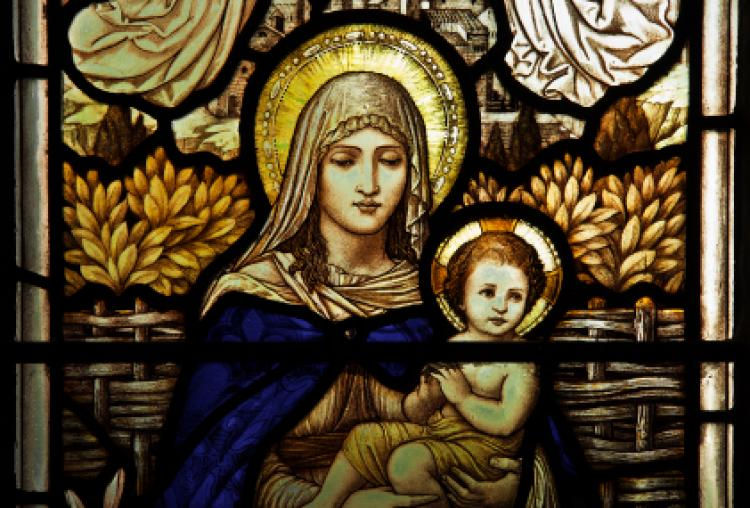The Dogma of Mary’s Motherhood of God
- Mother of All Peoples

- Jan 28, 2019
- 3 min read

Nestorius refused to call Mary “Mother of God” not primarily because of a mariological error, but because of a christological error (an error concerning the true doctrine of Jesus).
Nestorius erroneously divided the one person of Jesus Christ into two separate persons, and thus Mary would be Mother only of the “human person of Jesus,” and not the Mother of God. The Ephesus definition of the Blessed Virgin as the Theotokos is actually a protection of the revealed truth about Jesus: that Jesus is one divine person with two natures, a divine nature and a human nature, and that the two natures are inseparably united in the one, and only one, divine person of Jesus. We see then at Ephesus a case in point of the truth that authentic Marian doctrine will always protect and safeguard authentic doctrine about Jesus Christ. Several times in the early Church, when there was a statement about Our Lord Jesus which lacked clarity concerning its ramifications, it was applied to the Mother of Jesus, whereby it became clear that the christological statement was incompatible with authentic Catholic doctrine. It is in this way that Marian doctrine safeguards the true doctrine about Jesus Christ.
Motherhood
To have an accurate understanding of Mary as Mother of God we must first have a clear understanding of the nature of motherhood itself. How do we define motherhood?
Motherhood is the act of a woman giving to her offspring the same type of nature that she herself has. This gift of nature is given through the process of conception, growth or gestation, and birth. The fruit of this process, which we may call maternal generation, is the whole child, the son or daughter, and not only the physical body.
For example, we rightly say that St. Elizabeth is the “mother” of St. John the Baptist, that is, mother of the complete person, not just of St. John’s body. This is a true statement even though we know that Elizabeth did not give John his soul which is created and infused directly by God. Motherhood then refers to the gift of like nature, with the fruit of motherhood always including the entire person.
It is in this same accurate sense that Mary is rightly called the “Mother of God.” What precisely does Mary give Jesus in the act of motherhood? First of all, let us establish what she did not give Jesus. Mary did not give Jesus his divine nature, nor did Mary give Jesus his divine personhood. Both of these aspects of Our Lord, in his divinity, existed from all eternity. But, “when in the fullness of time, God sent his son born of a woman” (Gal 4:4), Mary gave Jesus a human nature identical to her own, in the same way that each of our human mothers gave each of us a human nature. Since the human nature of Jesus is inseparably united to his divine nature in the one person of Christ, we correctly say that Mary gave birth to a Son who is truly God and, through Mary, truly man. In short, Mary gave flesh to the Word made flesh and is rightfully proclaimed “Mother of God.” (1)
It is for this reason that Jesus is called both “Son of God” and “Son of Mary.” Jesus is Son of the Father, since his divine nature was generated (not made) by the Father from all eternity. Jesus is Son of Mary since his human nature was given to him by Mary, his earthly Mother.
The truth of the Blessed Virgin Mary’s divine Motherhood and its corresponding dignity are found in these words of the Second Vatican Council:
(S)he is endowed with the high office and dignity of the Mother of the Son of God, and therefore she is also the beloved daughter of the Father and the temple of the Holy Spirit. Because of this gift of sublime grace she far surpasses all creatures, both in heaven and on earth (Lumen Gentium, No. 53).
Dr. Mark Miravalle







